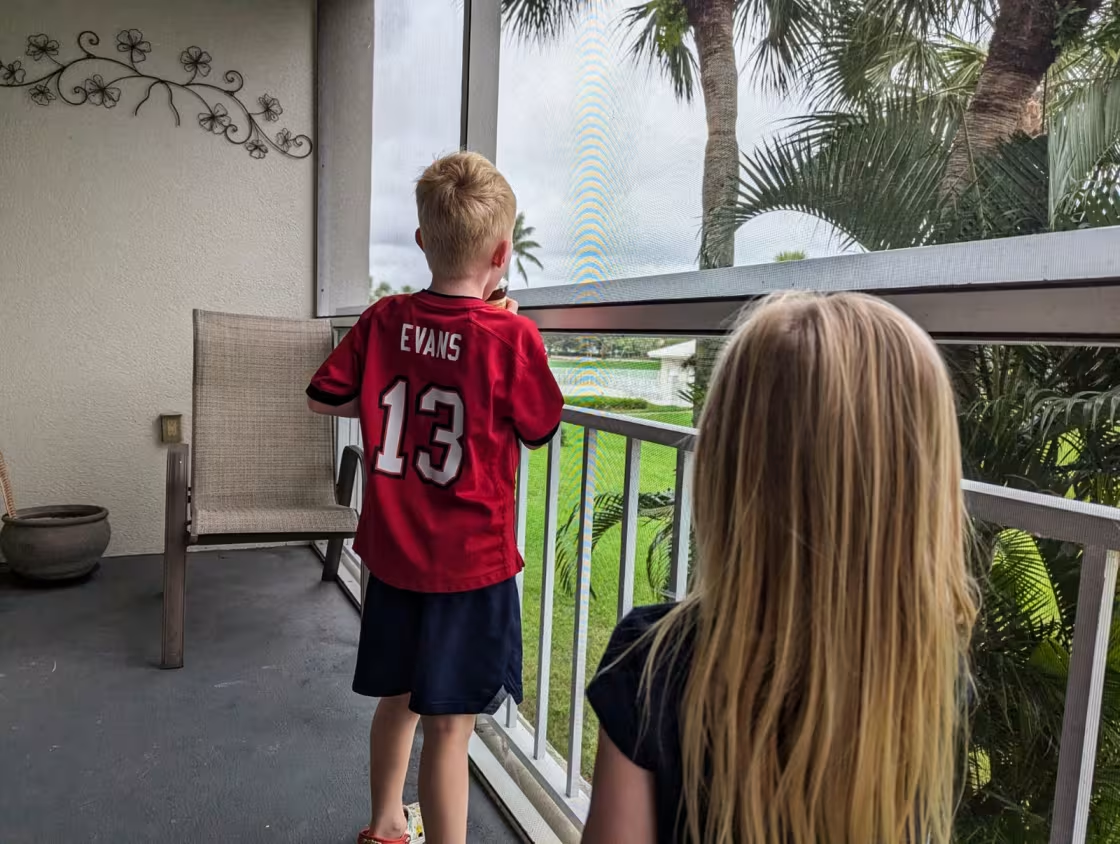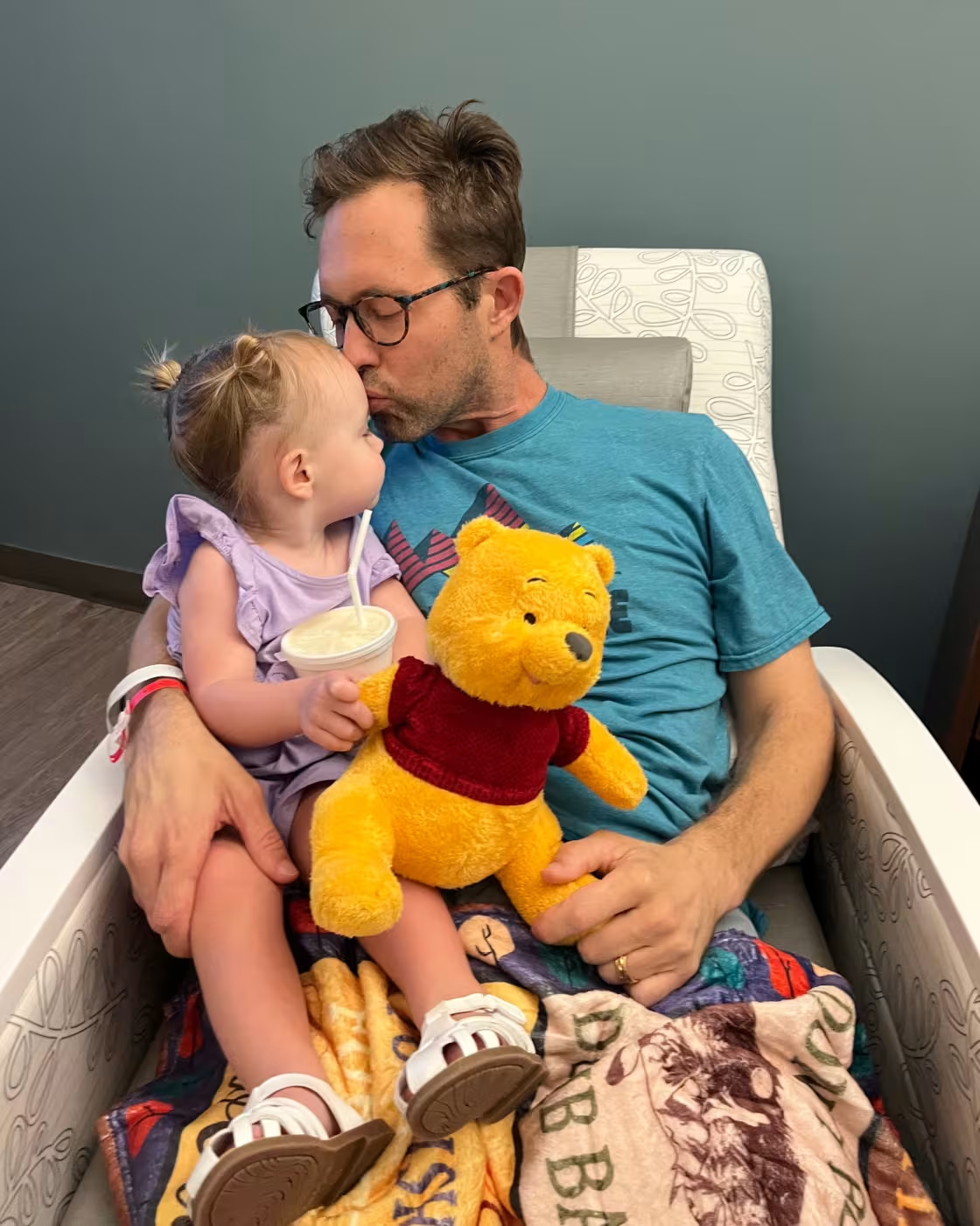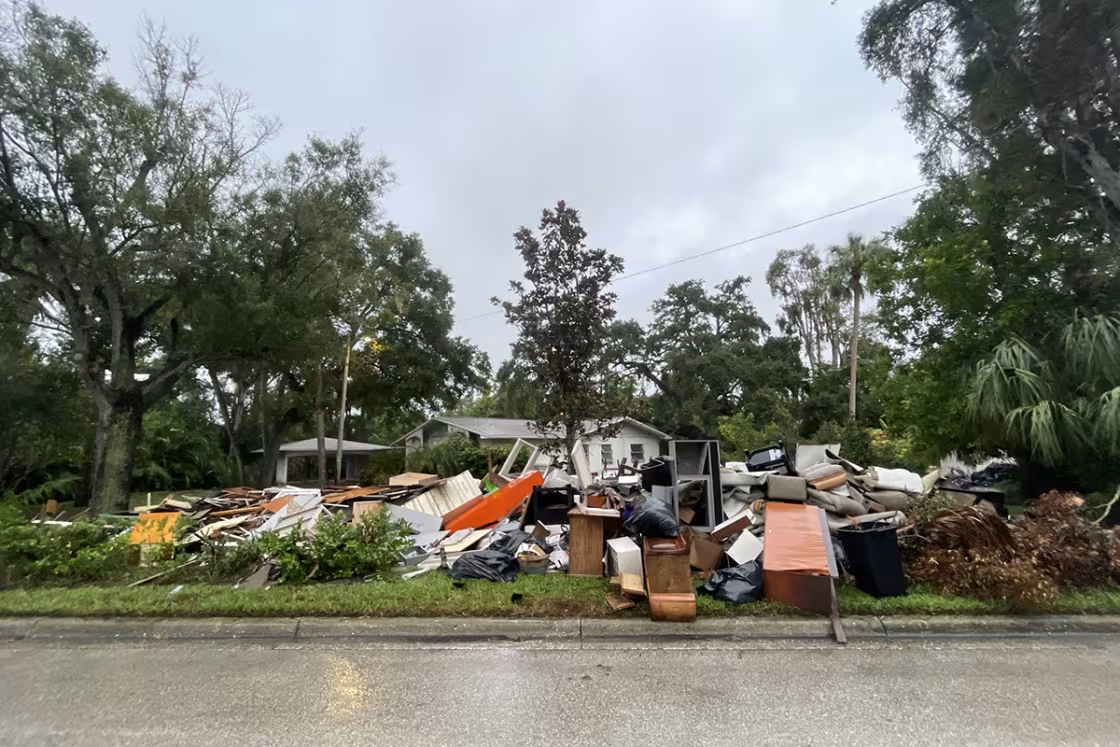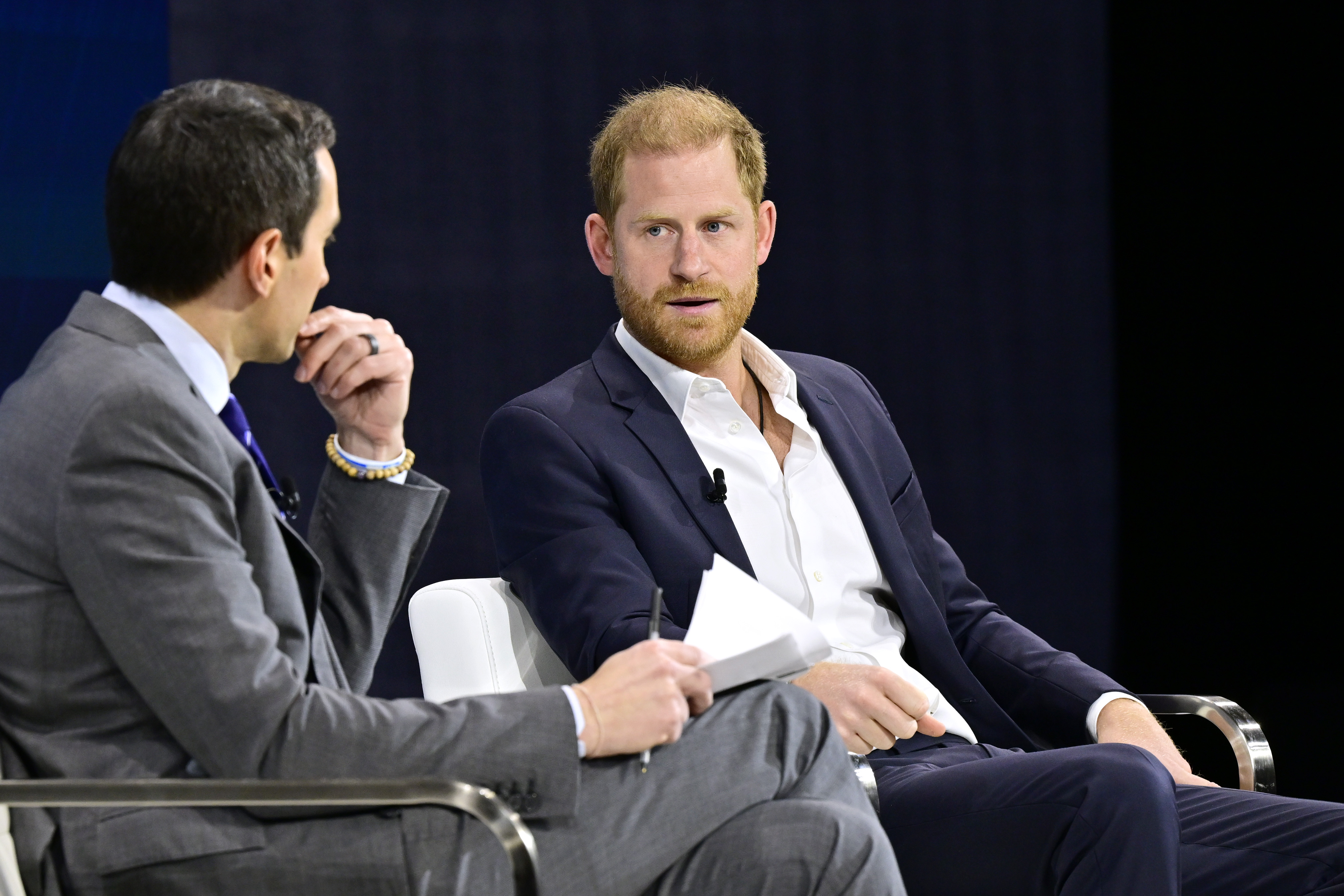The extent of the damage to homes and businesses from Hurricane Milton is still being assessed. The emotional strain of dealing with two major hurricanes and an unprecedented number of tornadoes in only a few weeks has left people in Florida reeling.
Dr. Meghan Martin, pediatric emergency medicine physician at Johns Hopkins All Children’s Hospital in St. Petersburg, said her home has flooded three times in the past four years, starting with Hurricane Idalia in late August 2023.
“There’s a lot of people feeling that anxiety, feeling the stresses, compounding with two different storms so close together,” Martin said.
While her home survived Milton's destructive flooding, she's unsure what to do next.
Get Tri-state area news delivered to your inbox. Sign up for NBC New York's News Headlines newsletter.
"I do feel drained. I’m exhausted," said Martin, who has been in the hospital working with the emergency operation center through the storm. "Obviously we need to make some changes, because we can’t keep going through this. My mental health cannot handle that."
Stress, anxiety, depression and other mental health problems often increase following natural disasters because of a phenomenon of “common reactions to abnormal events,” according to the Centers for Disease Control and Prevention.
“These natural disasters are psychologically beyond the normal human experience, and this trauma often leads to ongoing mental health struggles,” said psychoanalyst Dr. Gail Saltz, associate attending physician at NewYork-Presbyterian Hospital.
U.S. & World
Michelle Chernicoff, 39, who lives in New Port Richey, Florida, fled Hurricane Milton on Monday with her husband and two young children to her in-laws’ home in West Palm Beach after mandatory evacuation orders.

Hurricane Helene did not damage her home but, less than five miles away, there was complete devastation. “I did not go to bed until the storm had passed because I was just worried that the tree would come crashing down on my bed,” she recalled.
On Thursday, after Milton tore through the area, Chernicoff said there were big trees down in her neighborhood, "but from our cameras, our house looks good.”
“You have this duality of being grateful that it’s not you, and being devastated that it’s someone you know, that it’s your neighbor down the street,” she said.
More than 100 catastrophic hurricanes have slammed the Sunshine State’s coastline in the past century. The constant exposure to hurricanes causes not only physical destruction, but can also cause harm to mental health.
Feelings of stress, anxiety, grief and worry after a disaster are natural, but everyone's reaction may be different and may change over time. And it can be especially hard on children.
Before Milton came barreling in Wednesday night, Rita Simmons, 46, who lives in Pinellas County, on Florida’s west coast, was frantically preparing “for the unknown,” in her home with her husband, their two daughters and her 77-year-old mother.
"I cried in the middle of Publix," she said, describing her feelings of guilt about her children in the grocery store ahead of the storm.
They were trying to hide their fear from the girls, even as she was already coping with heightened anxiety after Helene’s flooding and heartbroken over the destroyed local beaches.
“Our 6-year-old is scared so we’re letting her set up a special area just for her with books, snacks and flashlights,” Simmons said.
Her husband, who is a Florida native and has experienced several major hurricanes, has tried to calm her family’s fears.
“These are events that you really have to experience firsthand to know how you will react and how your mental health will be affected,” she said.
The uncertainty can make anxiety worse — especially in people who have underlying mental health problems.
Dr. Matt Shannon, director of community emergency medicine at University of Florida Health, said, “Once we increase uncertainty into patients with underlying mental health challenges, then we start to see patients decompensate and then end up in the emergency department with an acute mental health crisis.”
In his past 10 years of practice, Shannon said, he is seeing more patients with unstable anxiety — often precipitated by events that patients perceive are out of their control, such as family and job stressors or the possibility of severe tropical weather.
Saltz, from NewYork-Presbyterian, said initially people experience an “acute stress reaction,” which may include:
- Depressed or anxious mood.
- Avoidance of anything that reminds them of the storm.
- Sleep problems.
- Irritability or feeling constantly on edge.
- Difficulty concentrating or not taking pleasure in anything.
- Having intrusive disturbing memories of the event or after.
“These symptoms can last for a month but, left untreated, some of those people affected by the hurricane will go on to develop post-traumatic stress disorder, which includes all of these symptoms in an ongoing way,” she said.
Simmons, who has weathered through multiple hurricanes and has multiple medical problem,s including generalized anxiety disorder and obsessive-compulsive disorder, notes, “The hurricanes have heightened our anxiety and fear.”
'A feeling of helplessness'
Shannon worries particularly about the patients in isolated rural areas who may arrive very ill, having run out of their usual resources because they are cut off from their communities.
Hurricane Helene also added stress to other vulnerable populations, like hospitalized patients undergoing chemotherapy.
Dr. Michael Warren, 34, and his wife Kelly Warren, 33, both grew up in Florida.
Their home in Sarasota experienced some backyard and yard debris with Hurricane Helene, but his parents’ home got 2 feet of water in Clearwater.
Several weeks ago, Warren was diagnosed with acute leukemia and is currently undergoing induction chemotherapy at Moffitt Cancer Center in Tampa.

“It’s definitely a feeling of helplessness when you’re stuck in the hospital,” Michael said.
When they got news of Hurricane Milton, his wife broke down.
“I just started crying, because it’s just, it’s just too much,” Kelly said.
Ongoing grief, anxiety from storms
It’s natural to feel overwhelmed immediately after a hurricane, but it’s a red flag when persistent symptoms of hopelessness or difficulty concentrating or being unable to think about anything else affect daily activities, experts say. People affected by trauma are at increased risk of alcohol or substance abuse.
“High irritability is also a symptom, and anger and violence can follow if left untreated,” Saltz adds.
Symptoms can last for years, although children, older adults and first responders may be more at risk after flooding, research shows.

Mental health experts urged people who needed to talk to someone to a disaster distress line to connect with a trained counselor. The Substance Abuse and Mental Health Services Administration (SAMHSA) recommends to call or text 1-800-985-5990 24/7.
When in the hospital, Martin engages with her patients to help them feel that “we’re all in this together.”
This story first appeared on NBCNews.com. More from NBC News:



